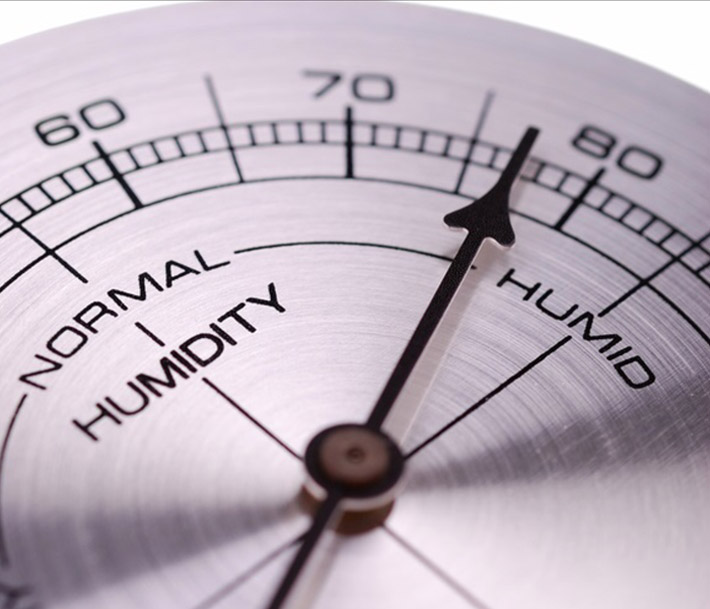
It’s summer. The sun is shining, the temperatures are rising, and the air is a hot, sticky mess. That steamy feeling that washes over you when you step outside is all thanks to the humidity in the air. And it can wreak havoc on your body when you’re trying to stay cool.
To understand how humidity affects the human body, you need to understand how the body responds to heat. As you probably already know, when the temperature rises, your body reacts by releasing sweat. But sweating only works when the moisture excreted through the skin actually evaporates. When the humidity is high, the air is already full of moisture and it therefore can’t absorb the sweat from your skin.
Think of the air like a sponge. When the humidity is low, that sponge can absorb plenty of water. But when it’s very humid, that sponge is full of water and can’t absorb any more. So you’re sweating like crazy but you’re not getting any cooler.
As your internal temperature continues to rise, your body responds by cranking out even more sweat, leaving you feeling hot, sticky and in danger of dehydration. With all of that sweat that your body is pumping out, you’re losing water, salt and minerals.

High levels of humidity make the temperature feel even hotter than it really is because the moisture in the air makes it difficult for our bodies to cool down. Just as meteorologists tell us the wind chill in the winter to describe how the temperature really feels when winter winds are blowing, they use the heat index to describe how high temps feel when the humidity rises.
When the humidity is 30 percent or below, the air temperature feels more or less like what you see on the thermometer, but this chart from the National Weather Service shows how those temps skyrocket as the humidity rises. That’s why a hot 90-degree day feels like an unbearable 105 degrees when the humidity is 70 percent. It feels even hotter as the humidity rises.

As if all of that weren’t enough to leave you feeling exhausted, humidity can also wreak havoc on your sinuses, as high humidity causes both dust mite populations and mold colonies to grow. If you hide indoors to escape, you could be exposing yourself to excessive levels of allergens that leave you feeling headache-y and fatigued.
So what can you do to combat the effects of humidity on your body? On hot summer days, keep track of the humidity just as you would the temperature. When it’s high, be sure to drink plenty of water, slow down and rest as often as possible to give your body a chance to cool down and recover.




Leave a Reply